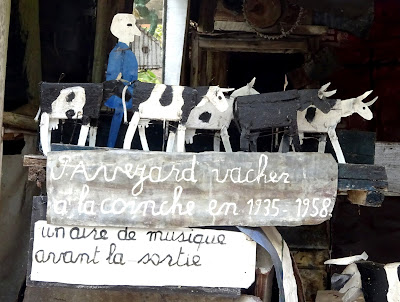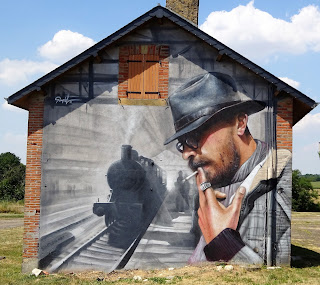Joël Dicker's second novel La Vérité sur L'Affaire Harry Quebert (translated quite literally as The Truth about the Harry Quebert Affair) reminds me (merely thematically) a great deal of Rostand's Cyrano de Bergerac, and not a little of Nabokov's Lolita. But then, this 855-page novel is also a detective story, a mystery, whodunnit, a love story, and a kind of hymn in praise of writing. On the back cover of the poche edition, Bernard Pivot says that you're hooked by the twists, red herrings and coups de théâtre as soon as you stick your nose inside it. It also scooped le Prix Goncourt des lycéens for 2012. So, is it so brilliant, worth ploughing through all those pages for?
I had serious doubts, so have avoided the book until it fell into my hands free of charge. Indisputably, this book is written with dollars in mind: OK, France has a long love story with America, and even Sartre loved Hollywood cartoons. But this novel seems to be specifically written with screenplay mode in mind, easy on the language, easy on the violence, only hints of paedophilia to disturb the peace.
And yet there is so much here, as I suppose you'd expect from such a huge book: a fifteen-year-old girl changed from a nymphomaniac into a beaten child, then transmogrified into a schizophrenic mother-killer; the obvious suspect soon released from jail to make way for many other suspects; obvious villains turned into not exactly saints but hugely worthy citizens; everything is turned around, expectations are continually mocked.
There's a left-wing current running throughout this novel, and I'm pleased that the really bad guys in the end are the cops. But great literature? Do me a favour: this is a great book to read in idle moments, but it is definitely not a wonderfully written book: it's a good read, certainly a page-turner, but Joël Dicker's novel is not a book full of wonderful insights and ideas: it's just a beach/airport read. And far too long at that.
My other post on Joël Dicker:
––––––––––––––––––––––––––––––––––––





















































